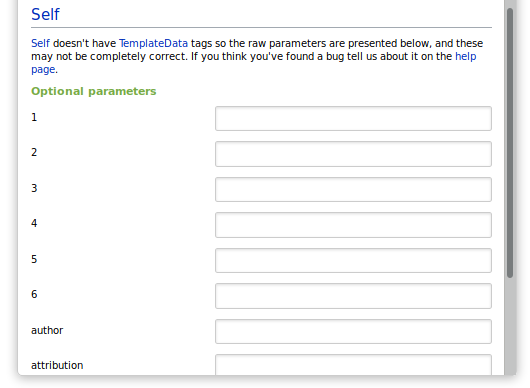If a template has no templatedata, we should attempt to extract the basic parameter names from the template and present them as-is (i.e. with basic text inputs and no labels or types or defaults etc.).
As is done by
https://en.wikipedia.org/wiki/User:%D7%A7%D7%99%D7%A4%D7%95%D7%93%D7%A0%D7%97%D7%A9/TemplateParamWizard.js
and https://de.wikipedia.org/wiki/Wikipedia:Technik/Skin/Gadgets/Vorlagenmeister
(Requested at https://en.wikipedia.org/wiki/User_talk:Samwilson#Template_parameters_wizard )
